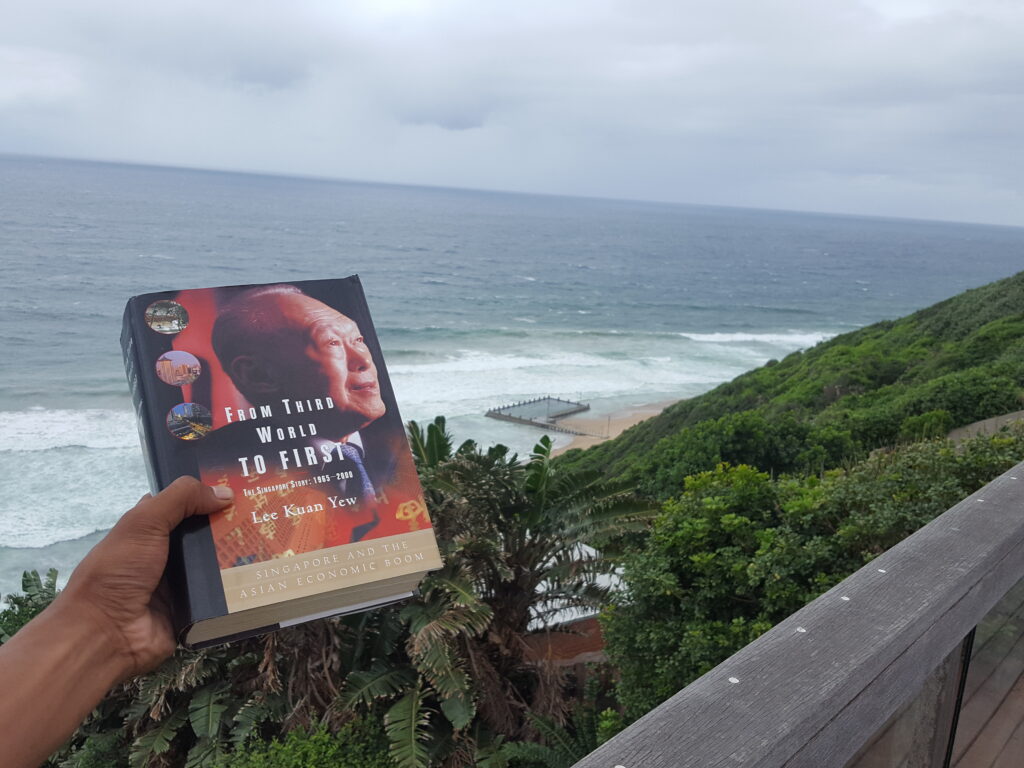
From Third World to First World: Lessons from Lee Kuan Yew’s Singapore
In late 2015, I stumbled upon the story of Lee Kuan Yew and the transformation of Singapore—a story so extraordinary that it left me both flabbergasted and inspired. Here was a tiny island nation, with no natural resources, no military to protect itself, and a population of diverse ethnicities and religions, surrounded by countries that offered little support. Yet, under the leadership of one man, Singapore rose from the depths of a malarial swamp to become a global economic powerhouse in just 30 years. This is a success story so grand, so unprecedented, that it is criminally under-discussed in popular discourse.
Singapore’s journey from Third World to First World is often referred to as an economic miracle, but in truth, it was no miracle at all. It was the result of recognizing reality, making hard decisions, and above all, doing what works. Lee Kuan Yew had a clear vision: to build a nation that could thrive despite its lack of natural resources. He understood that for Singapore to survive, it had to become indispensable to the global economy.
What I find so appealing about this story is that nothing like it had ever been done before. There was no blueprint, no standard to follow. Lee Kuan Yew’s leadership style was pragmatic to the core. He didn’t shy away from making difficult decisions, whether it was taking a hard stance against labor unions, reforming social security, or eliminating corruption by paying politicians well enough that they wouldn’t seek bribes.
His approach was straightforward: find out what works and do it, regardless of ideology or popular opinion.
One of the most remarkable aspects of Singapore’s success is that it was achieved in a multi-ethnic society. At a time when the world seems increasingly divided along ethnic and religious lines, Lee Kuan Yew’s ability to unify a diverse population under a common national identity is nothing short of extraordinary. The Muslims of Indonesia “spat out” the people who would later form Singapore, yet instead of succumbing to victimhood, they built a nation that now stands as a model for the world.
Reflecting on this story, I can’t help but think of my own country, South Africa. We have an abundance of natural resources, millions of hectares of land, and a population that, like Singapore’s, is rich in diversity. Geographically, we are well-positioned to be a major player on the global stage. Imagine the magnitude of success we could achieve if we applied the same principles that Lee Kuan Yew used to transform Singapore.
Yes, it will require hard work. Yes, we will have to make difficult decisions that may not be popular in the short term. But the sweet feeling of success, of standing as a great global power, is worth the effort. We need to recognize our own strengths and stop telling ourselves that we are weak. The story of our inferiority complex does not benefit us anymore. We need a new narrative, one that believes in our potential and our capacity for greatness.
Growing up in poverty, I learned firsthand the value of hard work and determination. I changed my life through sheer force of will, and I believe that South Africa can do the same on a national scale. If I can overcome the odds as an individual, imagine what we can achieve as a nation. It’s time to stop focusing on the trivial and start paying attention to the principles that lead to prosperity and success. The story of Lee Kuan Yew and Singapore is not just history; it’s a blueprint for our future.
Let’s start talking about the successes that matter, the ones that have the power to transform lives and nations. Let’s draw inspiration from Singapore’s journey and commit ourselves to building the South Africa we all know is possible. The road may be difficult, but the destination is a place of strength, pride, and global significance—a place where we truly belong.
P.S. If you want to get a taste of Lee Kuan Yew’s personality, do yourself a favor and watch this short video below: Listen to his perspective on Drug Trafficking and the rule of law.